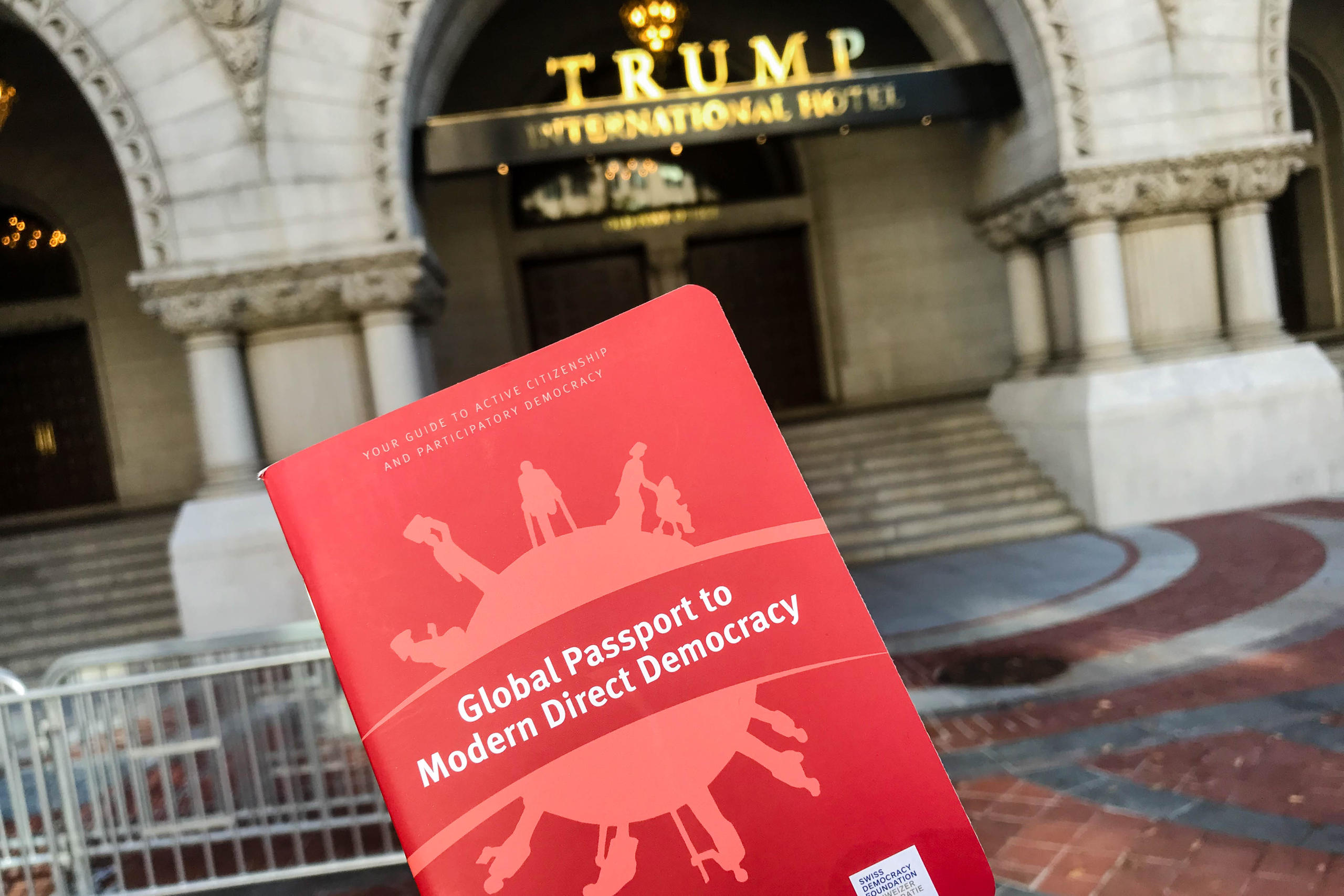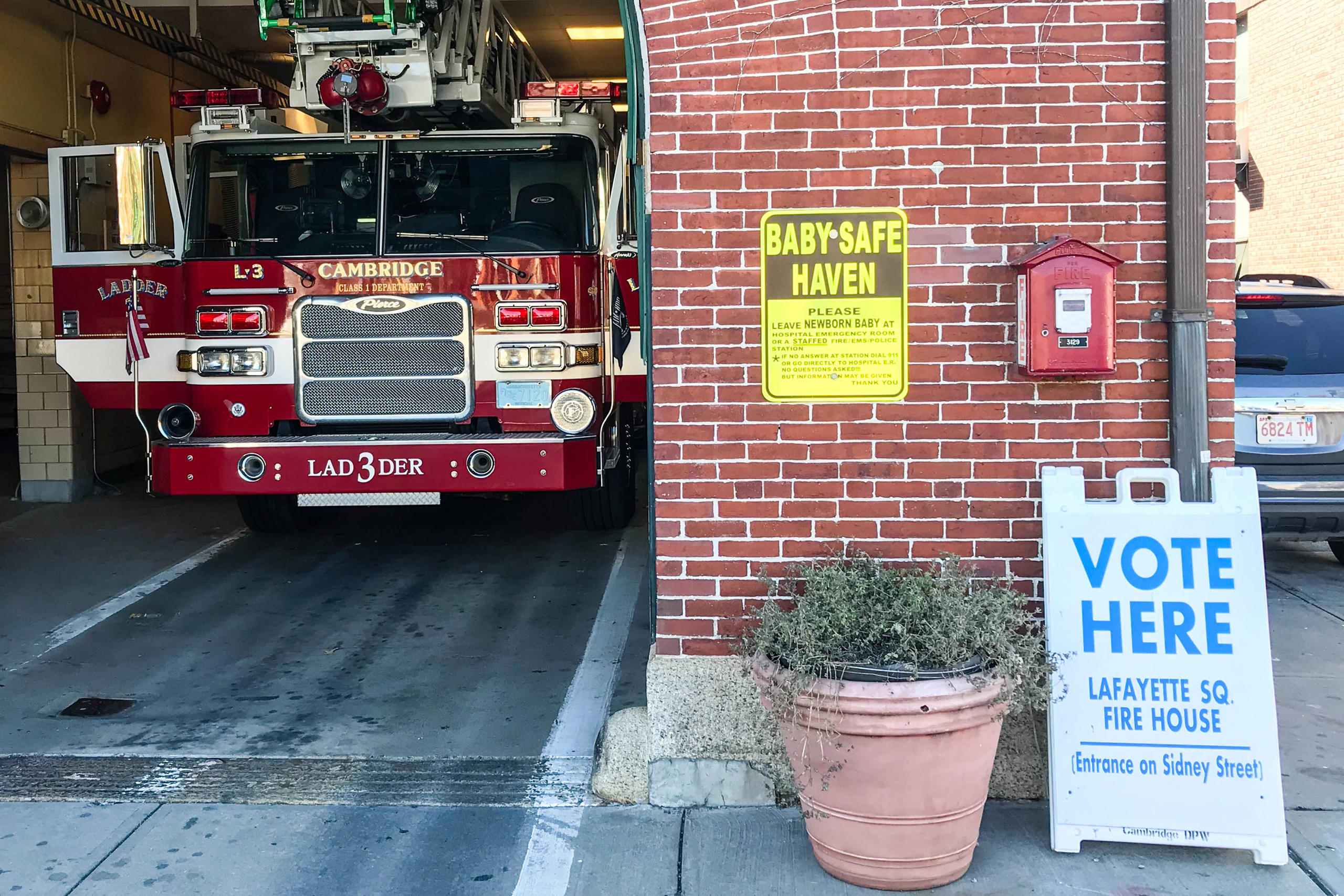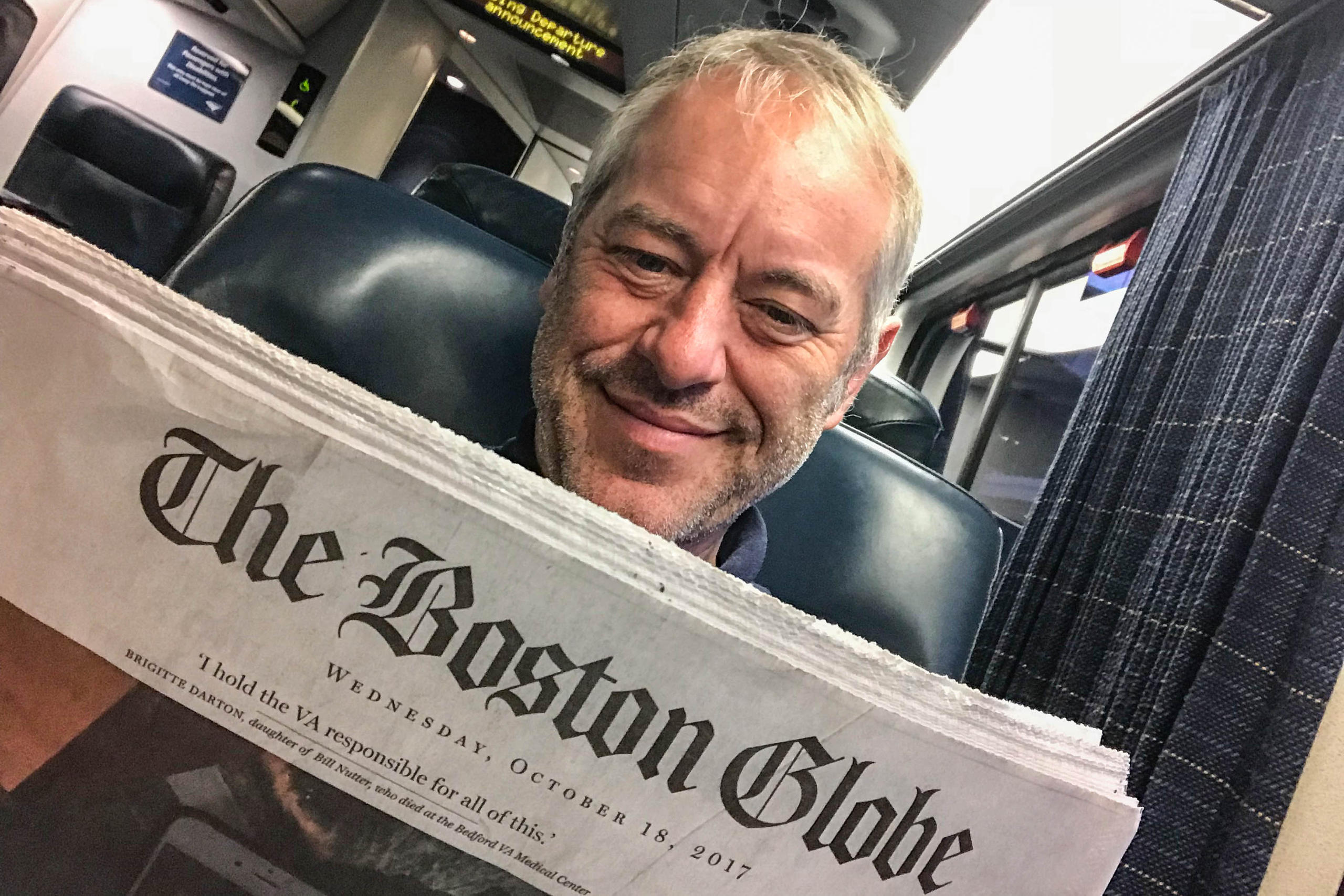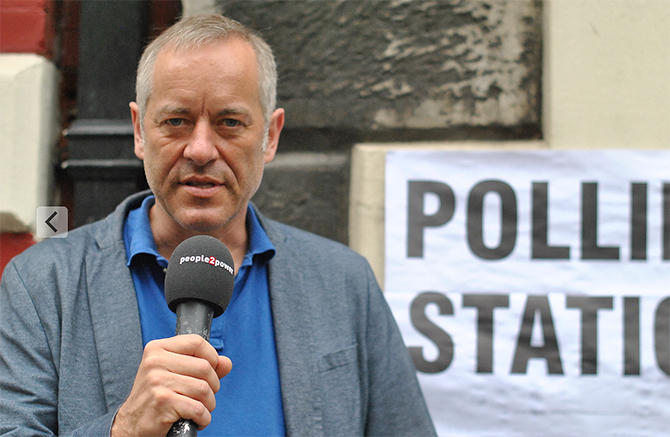America’s democracy learns to live with Trump

From a distance, Donald Trump’s presidency looks like a bizarre television reality show about the United States. On closer inspection, this first impression can be misleading and leaves room for hope.
I am on the move now. My 200 day world tour to report and support on democratic practices and developments around the globe is underway.
First and definitely the right destination: Trumpland! Over the past week I have visited a host of places in America’s Northeast with its nine states and home to more than 60 million people. Most of them did not vote for the 45th president of the United States in last year’s elections. In fact, voters overall did not vote for the real estate mogul and TV showman, not even a majority (Hillary Clinton won 48,3% of the popular vote, Trump 46,2%).
Instead Trump was propelled into the White House based on a majority in the electoral collegeExternal link – and has continued to behave like an angry and divisive man on the campaign trail. So sad.
For a big old democracy like the US this is a true litmus test. And for me a great opportunity to look beyond the continuing barrage of unfriendly tweets from the Republican White House and its Democratic opponents. Here are my observations:
First thing for all foreigners visiting the US is a brief conversation with an officer of the US Custom and Border Protection. At Logan Boston Airport, I was asked the usual question why I was coming to the country.
My answer: “I am here to support democracy.” I showed the officer the new Global Passport to Modern Direct DemocracyExternal link, which I authored. In the past, I was usually told that the US is not a democracy, but a republic. But this time? “Wow, can I have one, I am really interested!” You are welcome, Sir!
“The cradle of democracy”
Hours later, I met Chris Dempsey on Faneuil Market Place in downtown Boston.

“This is the cradle of democracy and we are very proud of it,” says the smart young man. He is not a tourist guide or local historian, showing foreigners where the American independence was declared in 1776.
Dempsey is a modern active citizen, who has recently been in the eye of a political storm. With a few thousand dollars in his pocket and the help of a group of friends, he was able to stop a controversial campaign to bring the 2024 Summer Olympics to this town of 673’000 residents.
It was a fight against a powerful mayor, against Massachusetts’ most powerful real estate mogul and against the American Olympic committee.
“The ‘No Boston Olympics’External link campaign was a pro-democracy campaign,” says Dempsey. “In the end, we did not even have a referendum about the bid.” Now he is engaged in improving public transport in the bigger Boston area of almost five million people.
Three years ago, having observed the 2014 elections in the American Mid-West I wrote: “Democracy in America has seen better days ever since French political thinker Alexis de Tocqueville first visited the United States more than two centuries ago. It has turned into an ugly beast with too much money and too little participation. However, at the heart of it all you can still find unlikely beauties.“
I see no real reason to change my opinion, on the contrary. Against the backdrop of a real ‘beast’ in the White House, the resilient ‘beauties’ of American democracy have become even more impressive to me.

Or as historian David A. Moss who teaches at Harvard and whose book Democracy, a Case Study (Harvard University Press, 2017) I found at the local university bookshop put it: “To all who declare that American democracy is broken, history offers hope.”
Moss’ colleagues at the e Public Participation programme of the Ash Center for Democratic Governance and InnovationExternal link see even new opportunities arising: “The Trump presidency is a wake-up call for all of us,” says Daniel Harsha, director of communications at Harvard’s biggest institute dealing with democracy.
Harsha does not exclude the possibility of a two-term presidency by Trump and he stresses the need “that our democracy must become much more participatory in the future”. Since 2015 the centre, which has several hundred scholars, fellows and staff, gives a participatory awardExternal link to the best democratic initiative in the US.
Takoma Parks democracy innovations
Many places I visited in the New England states north of New York offer a lot of proofs of longstanding democratic traditions. And the closer I got to 1600 Pennsylvania Avenue (the address of the White House if you want to send a note…), the more I was impressed by signs of a resilient democracy.
In the city of Takoma Park at the border of Washington DC, I had breakfast with Rob Richie, the executive director of FairVoteExternal link, a countrywide non-governmental organisation which wants to democratise America’s surprisingly undemocratic voting system.

Talking to Richie I was most struck by his achievements as an active local citizen in Takoma Park: “As the first city in the USExternal link we have granted 16-year olds the voting right,” says Richie and adds, that non-citizens can also vote in Takoma Park, a municipality of 17’000 residents.
Just across the state border, inside the District of Columbia, less than 5% of the 2016 presidential voters opted for Trump.
Many journalists, who often are denounced by the president as “fake-media”, have embraced the new times: “We have added more than 300 people to our staff,” says a Washington Post reporter I met for lunch.
And Mike Allen, the founder of PoliticoExternal link – which he recently left to set up a new online magazine, AxiosExternal link – is even more outspoken: “I think that this presidency is a great civics class.”
Swiss-Swedish author and journalist Bruno Kaufmann has set off on a world tour to explore the state of democracy visiting more than 20 countries on 4 continents until May 2018.
swissinfo.ch will publish a weekly Notebook and multimedia reports by Kaufmann over the next few months as part of its coverage of direct democracy issues.
Kaufmann’s democracy world tour is mainly sponsored by the Swiss Democracy FoundationExternal link, where he is the director of international cooperation. The Swiss Democracy Foundation hosts various projects and platforms linked to participatory and direct democracy across the globe, including Democracy InternationalExternal link, the Direct Democracy NavigatorExternal link and the Initiative and Referendum Institute EuropeExternal link.
He lists several organisations and programmes, which Trump has attacked on his crusade against everything and everybody, but which by now have won broad public support.
During the first week of my #ddworldtour, I could use my basic tactics as a long-time foreign correspondent to get a feel about the mood on the ground.
In addition to scheduled meetings with people from various walks of life, I always try to buy the local newspapers available and to use all kinds of public transport.
While seemingly old-fashioned, this is often a good way to strike conversations on local issues, especially when taking buses, subways and trains across the region.
Travelling by train between Boston and Washington (a distance of almost 700 km) and back, I thought about a strong similarity between the railroad system and democracy in America.
Both are old and not very fancy and leave a lot to be desired with. But both the railroads and democracy in America are made up of and used by many great people (at the grassroot level). And what is most important: they have proven to be very resilient.
#ddworldtour Notebook Coming up next week: “Hot days of decision in the northern lands of ice.
Follow the tour on Twitter @kaufmannbruno Instagram @democracyreporter Facebook /people2power.infoExternal link

In compliance with the JTI standards
More: SWI swissinfo.ch certified by the Journalism Trust Initiative











You can find an overview of ongoing debates with our journalists here . Please join us!
If you want to start a conversation about a topic raised in this article or want to report factual errors, email us at english@swissinfo.ch.